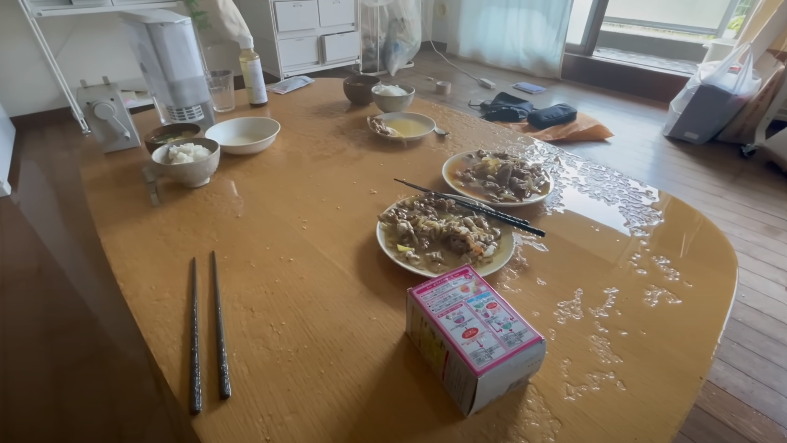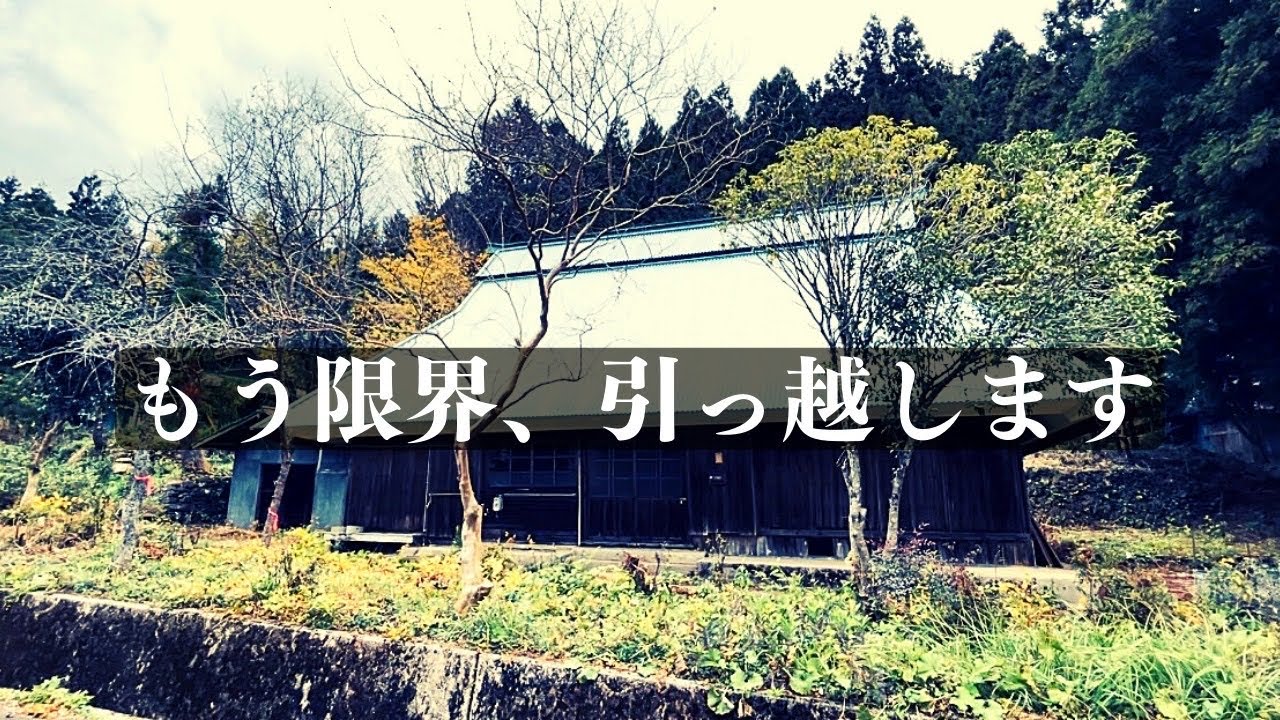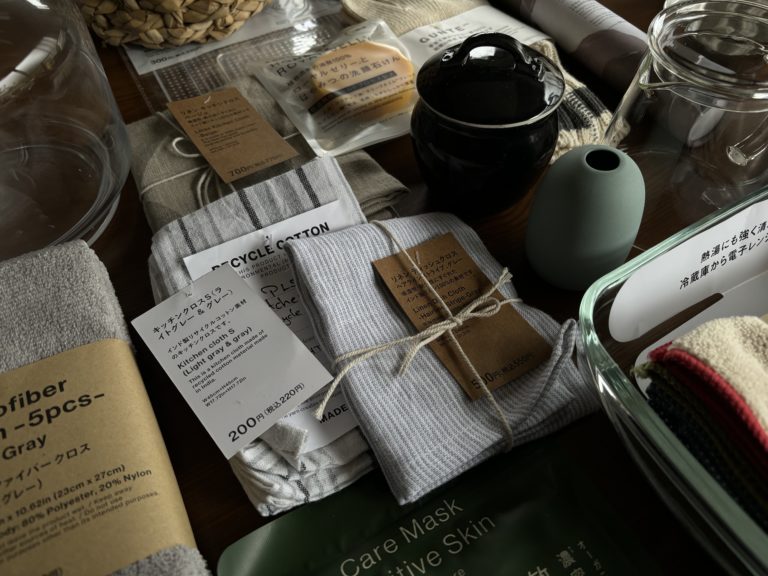Japanese family leaves Tokyo for the inaka, only to be met by social disaster.
#移住失敗 (#ImmigrationFailure)
Kyoryokutai (Japan’s Chiiki Okoshi Kyoryokutai or JOCV) is a professional role that aims to revitalize the Japanese Countryside. Participants are given a salary from the Japanese government for up to three years (japanforward.com has a nice overview of the program in English). They are given resources to join or start a new business in the inaka, while also taking time to volunteer in their new communities.
In this video, a family recounts their participation in the program, only to be met by disaster. One parent from Tokyo and one from Ehime, they moved their young family of five from the city to rural Ehime Prefecture.
The former primary school teacher, Mr. Akira Yagyu, began to reconsider his lifestyle during the pandemic, seeking a simpler and wholesome lifestyle and the excitement that accompanies a new challenge.
Taking on the renovation of a 200-year old kominka folk home, they were sharing their project publicly on YouTube. After quitting his position, Yagyu-san posted this video about the circumstances leading up to their leaving the region.
Their Story: An “Immigration Failure“
As the video only provides Japanese captions, below is an English translation of the narrative.
*Please note that there may be discrepancies between the original and the translation.
This video is an apology and report to the viewers. All of a sudden, we’ve been experiencing constant trouble due to worsening chronic illnesses and their homes being submerged in water due to the disaster. We gave up on renovating the old house and decided to move to another area.
Now, I will tell you how this happened using video from over the past year. A year ago, we moved from Tokyo to our current area because we wanted to live a self-sufficient life deep in the mountains. At that time, we relocated using the Regional Revitalization Cooperation Volunteer system [Kyoryokutai] recommendation by the Ministry of Internal Affairs and Communications. My recruitment requirements were that I would be on a free mission and that 20% of my activities would be devoted to local activities. I mainly worked on regenerating old folk houses, spreading positive information about the area, and working with the government and youth groups on PR activities to promote immigration.
The problem was that 20% of local activities meant poor relations with certain local organizations. In the eight years since its establishment, the local organization has boldly taken on various projects to develop the region. For the first few months, I also helped out with the organization’s work; running a non-profit organization for eight years using subsidies from the national and local governments, but without making any profits. Forcing volunteers to work on the project, and when the project fails, the blame is placed on past volunteers and they are pushed out of the area.
After learning about this background, I began to distance myself from the organization’s activities. But even though I had these feelings, I still participated in official activities. One day, I suddenly stopped receiving notifications about activity schedules, so I stopped participating.
Around August (three months later), my boss instructed me to come to the conference room at the community center. When I arrived, there were four people there including the representative of the group. I sat down in front of them. They started talking about my local activities.
“If you don’t cooperate with our activities, we will ask you to resign from the JOCV [Kyoryokutai group]. Choose whether to cooperate or quit. If kyoryokutai are dependent on the town, it will set a bad example for the next volunteer. Your presence has not helped this area.” These are the kinds of things I was told.
I asked if my contributions for clearing weeds from the municipal roads, cleaning up the school, and helping to clean up a private home were being taken into consideration. I was told no; that community contribution must be defined as from the leaders of the community. But I am also facing the fact that the local projects made volunteers sour and drove them away. This is not doing any good. I disagree with this.
I’m not sure if those people were the trigger, but the frequency of harassment towards me increased from that point on. I couldn’t sleep and felt ill. My asthma, which had been absent, returned. I started having difficulty breathing, so I was rushed to the hospital. I passed out in the ambulance. When I woke up, I was surprised to find various tubes connected to my body. When tests came back, there was nothing wrong. The doctor said it must have been due to stress.
After receiving medical attention, my condition gradually improved. My health was getting better, but I was having a hard time raising my children well. My wife had just given birth, so she was spread thin. Considering this, we decided to give up renovating the kominka and we would move to another area.
Regarding this, I would like to ask the mayor, vice mayor, council members, and administrative staff to take the time to talk to me individually. They came up with ideas and suggested how our family could settle in this area. But I don’t think the way I’ve been treated will ever end. The previous JOCV members had the same problems and abandoned the area. Considering this, the government officials supported me in moving to a new area.
After consulting with an outside organization, we were told that we might be able to take legal action for some of the treatments we received. I didn’t pursue legal action because that isn’t how I want to spend my time and energy. Also, the government said they would improve the environment to which volunteers are accepted.
I hope that those who come to this area with hope in their heart will not end up like the previous volunteers.
Our family decided on a new trajectory and we were preparing to move in better spirits. But something happened that was the final blow.
A fire broke out in the apartment building where our family lived. It was so strong, the apartment unit where it started was completely destroyed. Our unit, which was below the unit of origin, was flooded in efforts to extinguish the fire.
Upon learning about the fire, I worked to rescue people from the first unit, so I did not pay attention to the fact that our unit was flooding. After the fire was extinguished, the fire department and police interrogated me. I felt my anxiety rising. The fire happened in the evening, so our family and another family stayed at the local community center until midnight, unable to find a place where we could stay. Our house was flooded. Our bedding was wet. Our family went to the home of a couple who always looked out for us. They took care of us and provided food, baths and sleeping quarters.
In the morning, a fire department inspector came to inspect the scene. We observed the damage together. The worst area was the storage room, which had 3 cm of standing water. The fire department has put a tarp over some of our things, but our moving boxes were sitting in water. After the inspection, we began cleaning up. The diapers we received as a baby gift must be useful somehow. When uncovering something still useable, it’s a relief. Most of my clothes were wet and smelled like smoke and ash. Our host cleaned everything thoroughly. The bedding was a mess, but our friends kept washing it repeatedly until it was clean. Some people brought food and supplies. Some worked at the soup kitchen into the evening. Even though our life was in a disaster, it strangely felt encouraging. Though it was a brief time, our family will never forget the local people who helped us.
The day just before moving, we made the house as clean as possible. The landlord has been kind, and we are grateful.
To all of our viewers who supported us and looked forward to seeing a completed renovation: I’m sorry that this is how it turned out. It isn’t anyone’s fault that we couldn’t live here other than our own weakness and inadequacy. Someday I will remember my failure here positively. We will give our new place our best effort. We won’t give up on our dream. We aren’t going back to Tokyo. We will keep trying to create the life we have been dreaming of. Please continue supporting us. Thank you for watching.

~5 Million Views in One Year
The YouTube video has exploded and caused quite a buzz, seeing millions of views and thousands of comments in the first few months alone. The attention it has received has caused many people in Japan to think critically about the reception of new residents into rural communities. Here are some of the responses:

“This video really made me think about why immigrants don’t come and why depopulation is progressing. Please take care of your health and do your best in your new world!“

“I would like people to spread the word about the regrets of many immigrants due to rural customs, and to prevent more victims from becoming victims.”

“It’s no surprise that areas like this to decline and become depopulated! It was a very helpful video. I’m rooting for you.“

“They [rural community leaders] have two faces. They say they want to help revitalize the town, but in reality, they just want free labor.”

“The word “inaka” is often talked about in a very appealing way, but when it comes to human relationships, it might be better to visualize it as the world before modernization.“
Challenges Facing Rural Immigration in Japan
Immigration to Japan’s countryside villages is fraught with challenges. And not just for foreign people… urban Japanese seeking a slow life, self-sufficient lifestyles, or the peaceful countryside ideals are faced with unexpected challenges, especially in cultural expectations.
Small villages may seem like a drop in the bucket of Japan’s population (less than 10% of the population lives rurally). And from the outsider’s perspective, it would seem like rural villages should be excited to have inbound immigration. After all, depopulation carries some uncomfortable symptoms including fewer taxes to maintain community facilities, closing schools and clinics, and collapsing abandoned homes that have become not much more than a life source for new termite populations.
It is not uncommon for groups in Japan to see a “bottom-up” management approach. Those rural villages are not driven by the desires of the larger government – they are managed by themselves. For a new immigrants entering a rural village in Japan, they cannot succeed by appeasing the goals of larger Japan or even local government offices. They must bend to the desires of individual leaders in the local group.
The Responsibilities That Accompany Countryside Lifestyle
Someone entering a rural community will be faced with new expectations. While urban area maintenance is generally covered by tax-funded services, rural communities often carry these burdens on their own shoulders. Taxes don’t clean the community center, clear weeds from the roads, clean the shrine and abandoned schools, or cater the festivals: residents do. Deep rural Japanese communities are not monetary economies. They are social economies.
But in light of depopulation, the load gets a bit heavier. New immigrants may be faced with skepticism, especially those from a “cushy” urban lifestyle. Can they carry their weight?
The Takeaway
Moving to the countryside isn’t all rice paddies and kind grannies. It comes with social expectations, laborious responsibilities, and a new culture. Those looking to immigrate to rural Japan should understand what it will take to find harmony there and be prepared should friction arise.



